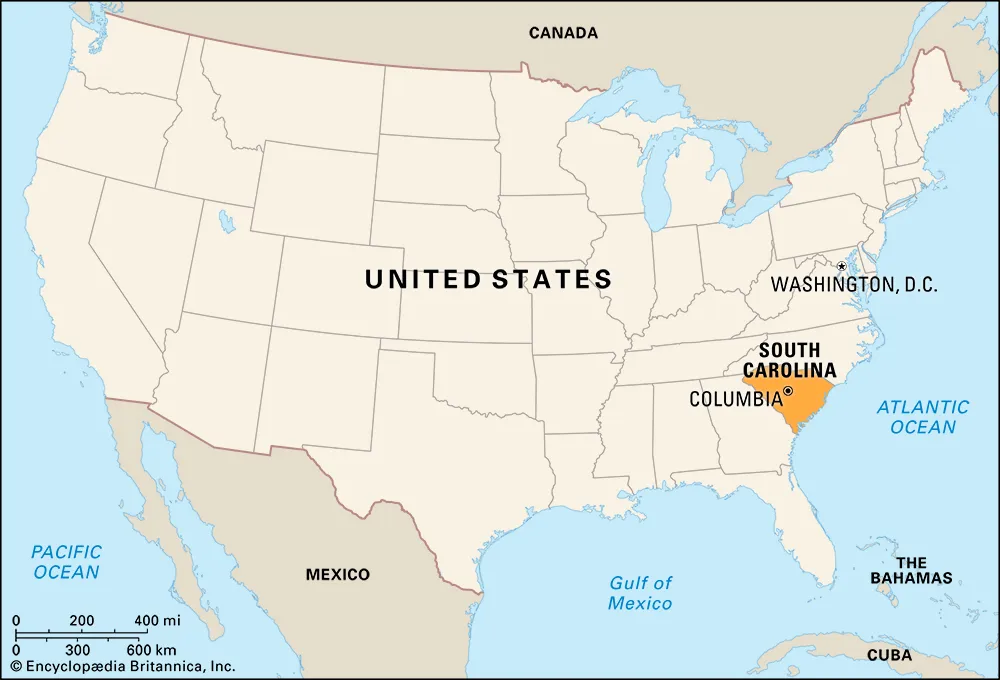
What is a Registered Agent in South Carolina?
In South Carolina, a Registered Agent acts as the official point of contact for a business entity, such as a corporation, limited liability company (LLC), partnership, or any other legal entity registered with the state. This agent is tasked with receiving important legal and tax documents on behalf of the business, including service of process (legal actions), government communications, and notifications from the Secretary of State. The role of a Registered Agent is pivotal in ensuring there’s a reliable method for the government and other entities to communicate with a business.
Key aspects of Registered Agents in South Carolina include:
Who Can Serve as a Registered Agent: A Registered Agent can be either an individual who resides in South Carolina or a business entity authorized to do business in South Carolina, provided they have a physical address in the state (known as a registered office). The agent must be available during normal business hours to accept documents.
Legal Requirement: Appointing a Registered Agent is a legal necessity for conducting business in South Carolina. It ensures that the business can be contacted through a reliable channel if necessary.
Privacy and Efficiency: For some businesses, using a Registered Agent service (a third-party provider) can offer privacy benefits and ensure that important documents are handled efficiently and promptly, minimizing the risk of missing critical deadlines.
Changing a Registered Agent: Businesses can change their Registered Agent by filing the appropriate forms with the South Carolina Secretary of State and paying any necessary fee.
Public Record: The name and address of a business’s Registered Agent are part of the public record and can be accessed through the Secretary of State’s website. This transparency aids in maintaining trust within the business environment.
How can I determine if my South Carolina business needs a Registered Agent?
In South Carolina, most formal business entities are required to have a Registered Agent. To determine if your South Carolina business needs a Registered Agent, consider the following:
Type of Business Entity: If your business is registered as a corporation, limited liability company (LLC), limited partnership (LP), limited liability partnership (LLP), or any other formal business entity with the South Carolina Secretary of State, you are typically required to have a Registered Agent.
Operating in South Carolina: Even if your business is formed in another state but operates in South Carolina (a foreign entity doing business in South Carolina), you must appoint a Registered Agent in South Carolina. This is necessary for service of process and receipt of official government documents.
Legal Requirements: The requirement for a Registered Agent ensures there is a reliable way for the state to communicate with and send legal documents to your business. This includes legal notices, tax documents, compliance-related correspondence, and service of process.
If your business falls within any of the categories mentioned above, it is generally mandatory to designate a Registered Agent in South Carolina. The Registered Agent must have a physical address in the state (a P.O. Box is not sufficient) and be available during normal business hours to receive documents on behalf of your business.
Note that for sole proprietorships and general partnerships that are not registered with the state, the requirement for a Registered Agent may not apply in the same way as for registered entities. However, if these businesses choose to register with the state for any reason, they may then be required to appoint a Registered Agent.
If you are unsure about the status of your business or whether your business activities require a Registered Agent in South Carolina, it is advisable to consult a legal advisor or contact the South Carolina Secretary of State’s office for specific guidance tailored to your situation.
What does a Registered Agent do for a South Carolina business?

A Registered Agent serves several crucial functions for a South Carolina business, acting as the official liaison between the business and the government. Here’s what a Registered Agent does:
Accepts Legal Documents: The Registered Agent’s primary role is to accept service of process on behalf of the business. This includes summonses, complaints, and other legal documents in the event the business is sued.
Government Correspondence: They receive official government communications, including tax notices and documents from the Secretary of State, such as renewal notices for the business’s annual report or other filings.
Compliance Reminders: Many Registered Agent services provide additional value by reminding the business of important filing deadlines, such as annual reports and tax returns, to help maintain compliance with state laws and regulations.
Maintains Privacy: By having a Registered Agent, the business’s owners can protect their privacy, as the Registered Agent’s address is used for public records instead of the business owner’s personal address.
Availability: A Registered Agent must be available at the registered office address during normal business hours to ensure that any documents served can be accepted promptly. This requirement helps prevent business entities from missing crucial legal deadlines.
Having a Registered Agent in South Carolina is not only a legal requirement for most businesses but also provides a layer of security and peace of mind, knowing that important legal and tax-related documents will be handled professionally and promptly.
Are there any legal requirements specific to South Carolina when selecting a Registered Agent for my business?
Yes, South Carolina sets forth specific legal requirements that must be met when selecting a Registered Agent for your business. These requirements ensure that there is a reliable point of contact within the state for legal and governmental communication. Here are the key legal requirements:
Physical Address: The Registered Agent must have a physical street address in South Carolina, known as a registered office. Post Office boxes or private mailbox services are not acceptable as the primary address.
Availability: The Registered Agent must be available at the registered office address during normal business hours to personally accept service of process and other official documents on behalf of the business.
Qualification: The Registered Agent can be an individual resident of South Carolina or a business entity that is authorized to do business in South Carolina. If the agent is a business entity, it must be in good standing with the South Carolina Secretary of State.
Consent to Serve: While not a formal document submission requirement, the appointed Registered Agent must consent to serve as the agent for the business. This is generally understood, although in practice, explicit documentation of consent is seldom required to be filed with the state.
It’s crucial for businesses to carefully select a Registered Agent who can reliably fulfill these requirements. Failure to maintain a qualified Registered Agent in South Carolina can lead to negative consequences for a business, such as fines, penalties, or even administrative dissolution.
How often should a South Carolina business update its Registered Agent information?

In South Carolina, there is no set schedule for how often a business must update its Registered Agent information. However, it is essential to update the information anytime there are changes to the Registered Agent’s name, address, or availability to ensure compliance with state requirements. This includes changes to the Registered Agent themselves, whether it’s a change of the individual or entity serving as the agent or modifications to their contact information.
Here are scenarios when a South Carolina business should update its Registered Agent information:
Change of Registered Agent: If you appoint a new Registered Agent, you must file the appropriate documentation with the South Carolina Secretary of State to update your business records.
Change of Address: If your Registered Agent’s address changes, you need to file an update to ensure that legal and important documents can still be received without delay.
Change in Availability: If your Registered Agent is no longer able to perform their duties during normal business hours, you should appoint a new agent who can.
Updates to Registered Agent information are typically made through filing a statement of change with the South Carolina Secretary of State, which may involve a filing fee. It’s vital to ensure that these updates are made promptly to maintain the legal standing of your business and guarantee that you do not miss any critical legal or state communications. Furthermore, some businesses choose to review their Registered Agent arrangements annually as a best practice to ensure that all information is current and accurate.
What is the easiest way to get a Registered Agent in South Carolina?
Finding and designating a Registered Agent in South Carolina is a crucial step for any business, ensuring that you remain compliant with state legal requirements. The easiest and most reliable way to secure a Registered Agent is by utilizing professional Registered Agent services, such as those offered by FormPros.
FormPros specializes in providing reliable Registered Agent services tailored to meet the specific needs of businesses in South Carolina. Here’s why you might consider using FormPros for your Registered Agent needs:
Expertise and Reliability: FormPros offers the expertise needed to handle your legal and state documents accurately and on time. With professional agents, you can rest assured that your business will stay in compliance with South Carolina’s regulations.
Convenience: FormPros simplifies the process of securing a Registered Agent. With an easy-to-use online platform, you can arrange for professional Registered Agent services quickly, without the hassle of searching for a qualified individual or different service on your own.
Privacy Protection: Using FormPros as your Registered Agent acquisition service can help protect your privacy. The address of your Registered Agent will be listed in public records, not your personal or business address, thereby shielding your privacy.
Compliance Alerts: Besides basic services, your Registered Agent may provide additional benefits like compliance alerts. These alerts can remind you of important filing deadlines or compliance requirements, further ensuring that your business stays in good standing.
Additional Business Services: Beyond Registered Agent services, FormPros offers a range of other business services, such as forming LLCs, corporations, and other entities, providing a one-stop solution for many of your business startup and compliance needs.
Choosing FormPros for your Registered Agent service in South Carolina ensures that your business has the support it needs to meet legal obligations efficiently and effectively. With professional expertise, convenience, and a host of additional benefits, it’s an investment in your business’s future compliance and success.
Utilize FormPros today to learn more about our Registered Agent services and how we can help your South Carolina business stay compliant and thrive.
How do I change a Registered Agent in South Carolina?

Changing your Registered Agent in South Carolina is a straightforward process that can be completed with a few specific steps. Here’s how to make the change:
Select a New Registered Agent: Before filing any paperwork, ensure that you have a new Registered Agent who meets South Carolina’s requirements. The new agent must consent to serve as your Registered Agent.
Complete the Necessary Form: Download and fill out the “Notice of Change of Registered Agent” form or the equivalent document for changing a Registered Agent, which is available on the South Carolina Secretary of State’s website. Be prepared to provide information about your business, such as your business name, the current Registered Agent information, and details about the new Registered Agent.
File the Form: Submit the completed form to the South Carolina Secretary of State. This can typically be done online, by mail, or in person, depending on the available options. Check the Secretary of State’s website for the most current filing methods and addresses.
Pay the Filing Fee: There is usually a small filing fee associated with changing your Registered Agent. Be sure to check the current fee and include it with your submission if required.
Confirm the Change: After submitting the form and fee, wait for confirmation from the South Carolina Secretary of State. This confirmation will verify that the change of your Registered Agent is complete and officially recorded.
It’s important to keep your Registered Agent information up to date to ensure you don’t miss any critical legal documents or communications from the State. Failure to maintain accurate and current Registered Agent information can lead to legal and compliance issues for your business.
For a smooth and hassle-free process, consider utilizing the services of a professional service like FormPros, which can assist in ensuring that your business meets all regulatory requirements without you having to manage the paperwork yourself.
Can I be my own registered agent in South Carolina?
Yes, in South Carolina, you can serve as your own Registered Agent for your business. This arrangement is legal as long as you meet the state’s specific requirements for Registered Agents. Here are the key criteria you must satisfy if you choose to act as your own Registered Agent:
Physical Address: You must have a physical street address in South Carolina. This address, known as the registered office, cannot be a P.O. Box. It must be a place where you can physically receive mail and legal documents.
Availability: You must be available at the registered office during normal business hours to accept legal documents, government correspondence, and other official communications.
While serving as your own Registered Agent can seem like a convenient and cost-saving option, there are several factors to consider:
Privacy: Your address will be listed on public records, which could be a concern if you are using your home address.
Availability: You need to ensure that you are consistently available during business hours to receive documents, which may be challenging if you frequently travel or conduct business outside of the office.
Professionalism: Having a third-party Registered Agent can add a level of professionalism, as legal notices and other documents will be handled by a service dedicated to these tasks.
Therefore, while acting as your own Registered Agent is an option, many businesses in South Carolina opt to use a professional Registered Agent service. This can offer convenience, privacy, and the assurance that important documents are handled promptly and professionally. Services, such as those provided by FormPros, can assist in fulfilling these needs while ensuring compliance with South Carolina laws.
Is it possible to appoint an out-of-state Registered Agent for your South Carolina business?
No, South Carolina law requires that your business’s Registered Agent have a physical presence within the state. This means that the Registered Agent must have a physical street address in South Carolina, not just a postal address or P.O. Box. The primary role of the Registered Agent is to be available to receive service of process, legal notices, and other official state documents during regular business hours.
While the Registered Agent must have a South Carolina address, it is possible for the Registered Agent to be a business entity, such as a professional Registered Agent service, that is authorized to do business in South Carolina. However, these entities must also comply with the requirement to have a physical office in the state where they can reliably accept documents on behalf of your business.
In summary, while your Registered Agent can be an individual resident or a business entity authorized to operate in South Carolina, they cannot be an out-of-state individual or entity without a physical presence in South Carolina. This requirement ensures that there is a reliable in-state contact for any legal or government communications.
Are Registered Agents from South Carolina responsible for any fees or taxes?

In South Carolina, as in other states, the primary role of a Registered Agent is to receive and forward legal documents, tax notices, and official government communications on behalf of the business they represent. Regarding responsibilities for fees or taxes, it’s essential to distinguish the Registered Agent’s duties from the financial obligations of the business itself. Here’s a breakdown of the responsibilities:
Responsibilities of a Registered Agent:
A Registered Agent is not typically responsible for paying any fees or taxes on behalf of the business they serve. Their role is administrative in nature, focusing on the receipt and proper handling of legal and official documents.
Business Financial Obligations:
The business entity (e.g., corporation, LLC) is responsible for its own financial obligations, including any state filing fees, franchise taxes, annual report fees, or other taxes assessed by the state of South Carolina.
While the Registered Agent might receive notifications about these obligations (since they’re the designated recipient of government and legal communications), it is up to the business’s internal management or accounting team to ensure these fees and taxes are paid on time.
Fees Associated with Serving as a Registered Agent:
Individuals or companies offering their services as a Registered Agent may charge a fee for their services. These fees are generally for acting as the Registered Agent and are paid by the business entity, not a fee or tax owed to the state.
If a professional Registered Agent service is used, the business will pay the service provider according to the terms agreed upon for their services, which is separate from any state taxes or fees the business owes.
In summary, while Registered Agents in South Carolina are crucial for ensuring timely receipt and processing of important documents, they are not directly responsible for the payment of the business’s taxes or state fees. The obligation to pay state-specific fees and taxes rests with the business entity itself. As a best practice, businesses should maintain clear communication and documentation from their Registered Agent regarding any notices received, especially those pertaining to financial obligations, to ensure timely compliance with all state requirements.
Sign Up for a Registered Agent in South Carolina Now
State Specific Registered Agent Service
- Alabama
- Alaska
- Arizona
- Arkansas
- California
- Colorado
- Connecticut
- Delaware
- Florida
- Georgia
- Hawaii
- Idaho
- Illinois
- Indiana
- Iowa
- Kansas
- Kentucky
- Louisiana
- Maine
- Maryland
- Massachusetts
- Michigan
- Minnesota
- Mississippi
- Missouri
- Montana
- Nebraska
- Nevada
- New Hampshire
- New Jersey
- New Mexico
- New York
- North Carolina
- North Dakota
- Ohio
- Oklahoma
- Oregon
- Pennsylvania
- Rhode Island
- South Carolina
- South Dakota
- Tennessee
- Texas
- Utah
- Vermont
- Virginia
- Washington
- West Virginia
- Wisconsin
- Wyoming
South Carolina Registered Agent FAQs
-
What qualifications must someone meet to be a Registered Agent in South Carolina?
A Registered Agent in South Carolina must have a physical address within the state and be available during normal business hours to receive legal documents. They can be an individual resident of South Carolina or a business entity authorized to operate in the state.
-
Can a company serve as its own Registered Agent in South Carolina?
Yes, a company can act as its own Registered Agent if it has a physical office in South Carolina and can receive documents during business hours. However, this is more common for individual business owners or single-member LLCs.
-
How does a business in South Carolina change its Registered Agent information with the state?
A business must file a Statement of Change of Registered Office or Registered Agent form with the South Carolina Secretary of State, either online or by mail, along with the required fee.
-
What happens if a Registered Agent fails to perform their duties in South Carolina?
If a Registered Agent fails to fulfill their responsibilities, the business they represent may miss critical legal deadlines or be out of compliance with state laws, potentially leading to fines, penalties, or dissolution.
-
Are there any restrictions on where a South Carolina Registered Agent can be located within the state?
No, a Registered Agent can be located anywhere within South Carolina, as long as the address is a physical location where they can receive documents during normal business hours.
-
Can a P.O. Box be used as a Registered Agent's address in South Carolina?
No, a P.O. Box cannot be used as a Registered Agent's address in South Carolina. A physical street address is required for the purpose of serving legal documents.
-
What types of documents will a Registered Agent in South Carolina receive?
A Registered Agent receives legal documents, such as service of process, as well as official state correspondence like annual filing notices and tax documents.
-
Is it necessary to notify the South Carolina Secretary of State if I change my Registered Agent?
Yes, it's mandatory to notify the South Carolina Secretary of State by filing the appropriate change form and paying any required fee when you change your Registered Agent.
-
Will the South Carolina Secretary of State reject a business filing if it does not have a Registered Agent?
Yes, the South Carolina Secretary of State requires all business filings to include a Registered Agent. Failure to appoint a Registered Agent may result in the rejection of your filing.
-
Can I appoint a family member as my business’s Registered Agent in South Carolina?
Yes, you can appoint a family member as your Registered Agent, provided they meet the state’s requirement of having a physical address in South Carolina and being available to receive documents during normal business hours.
-
How important is the role of a Registered Agent to the success of my business in South Carolina?
The role of a Registered Agent is crucial for compliance, receiving legal notices, and ensuring that your business maintains its good standing in South Carolina, which can significantly affect your business's success and reputation.
-
Are there any annual fees associated with maintaining a Registered Agent in South Carolina?
While South Carolina itself does not charge an annual fee for having a Registered Agent, professional Registered Agent services may charge an annual fee for their services.
-
Can a Registered Agent resign? What is the process in South Carolina?
Yes, a Registered Agent can resign. They must file a notice of resignation with the South Carolina Secretary of State and notify the business entity they are resigning from at least 30 days in advance.
-
How soon after forming my business should I appoint a Registered Agent in South Carolina?
It is required to appoint a Registered Agent at the time of filing your business formation documents with the South Carolina Secretary of State. Your filing will not be complete without a Registered Agent.
-
Can the address of the Registered Agent be the same as the business address in South Carolina?
Yes, the Registered Agent's address can be the same as the business address if the address meets all the requirements, including being a physical address in South Carolina where the agent can receive legal documents.
 Rated 4.8 from 14,000+ Happy Customers
Rated 4.8 from 14,000+ Happy Customers

